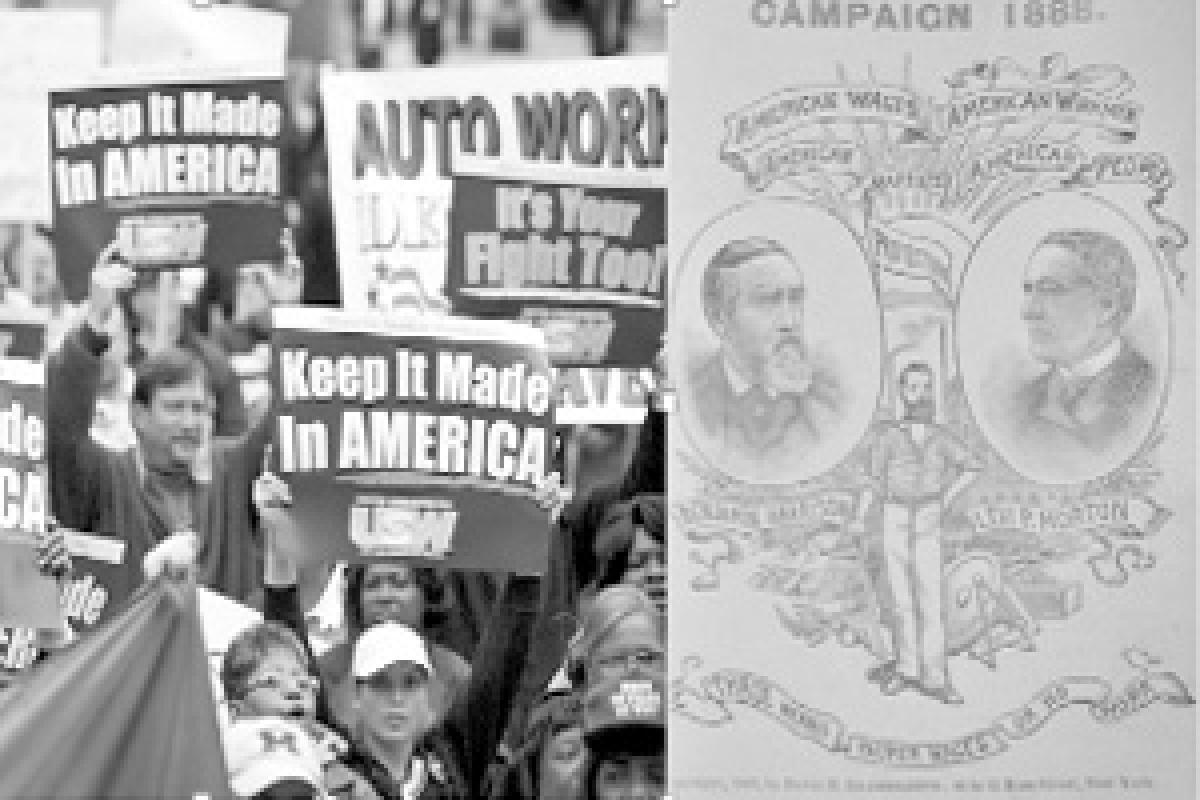Live
- Overcoming Sleep Struggles: A Comprehensive Guide to a Restful Night
- RTC bus hit the auto
- MLA Kuchukula Rajesh Reddy participated in the Birappa festival
- DMHO starts awareness campaign on Malaria
- World Intellectual Property Day 2024: Date, History, Significance, and Everything You Need to Know
- Shiv Sena-UBT manifesto assures dignity to all states; ‘no’ to polluting nuclear, refinery mega projects
- IPL 2024: Delhi Capitals sign Gulbadin Naib to replace injured Mitchell Marsh
- Delhi court grants 30-day extension to police to conclude probe in Parliament security breach case
- Cash, liquor, drugs valued at Rs 321 crore confiscated in Punjab
- Gunfight breaks out in J&K's Sopore
Just In

Donald Trump becoming the President of USA has raised concerns world over, as to what would be the state of international trade under his regime.
Donald Trump becoming the President of USA has raised concerns world over, as to what would be the state of international trade under his regime. It is a well-known fact that what happens in US matters immensely to the economies world over. Trump’s speeches during his election campaign made the US trading partners very uneasy, as his speeches smacked of protectionism policies that he would follow.
In fact after the Brexit and now Trump coming to power, people are debating whether this spells an end to the era of globalisation, which is being assiduously promoted for the past two-and-half-a-decades. The beginning of nineties saw the ascendency of globalisation, when even the socialist bastions such as USSR moved towards market economy and embraced various policies of globalisation and liberalisation policies.
Although socialism was supposed to be the answer to the ills of capitalism, it soon degenerated into a system, wherein private sector was throttled and the government interfered in trade and business. Further, the policies of protectionism made the domestic businessman very complacent, as he was protected from the foreign competition.
Even the western Europe and America which were capitalist societies were following protectionism in some form or the other. In USA, the Smoot Hawley Tariff Act, 1930, was one of the biggest examples of protectionism. The act resulted in raising US tariffs on goods to record levels. Tariffs on about 20,000 goods were supposed to have been raised.
This was followed by retaliation by trading partners. Canada was the first to retaliate, which was one of the largest trading partners then. It imposed tariffs on many products. France and Britain protested. Not to lag behind, Germany developed a system of autarky members, as its decisions were not binding.
By 1990s everyone realised the futility of the policy of protectionism. The merits of free trade such as benefits to the consumers in the form of more goods, more factor earnings, benefits of comparative advantage and widening of the size of the market far outweighed the demerits of protectionism, such as lack of competition resulting in lesser of choice for the consumers.
Post Brexit and Trump election, it is being hotly debated whether globalisation has promoted equality among the nations. Has globalisation led to more inequalities not only among nations but also within nations? One of the prime reasons cited for Brexit was job loss for the locals, as a result of free movement of people, which in turn was the product of globalisation.
Trump has been highly critical of job losses to Americans as a result of free movement of people. He minced no words in criticising free movement of people and free trade. He stated in no ambiguous terms his disdain for WTO and Trans Pacific Partnership (TPP). It is all the more clear that Trump is going to be tough on economic front as far as China is concerned, as he has stated that he is going to impose high tariffs on Chinese imports.
After his election, newspapers and magazines were suffused with articles that predicted the end of free trade and the beginning of protectionism wars. Pankaj Ghemavat in his article in ‘Harvard Business Review’ mentions that with Trump coming to power, the countries having bilateral surplus with US would be the first target. China will be the first target, followed by Canada, Japan, Germany, Mexico and South Korea. Ghemavat further adds in his article that domestic and foreign firms would face increased pressure for creating jobs in the US.
Other articles mentioned that there could also be uncertainties for India, given Trump’s antipathy for free movement of people. India is very much worried on H-IB visa front. IT exports to US could get jeopardised. Will Trump be tough with India also on trade front? What if Trump finally turns his election rhetoric into reality? Will ‘Smoot Hawley’ days be back in US? If that really happens, we would certainly see retaliation by countries. The protectionism wars, would mean, shrinkage in world trade.
Yes, agreed that globalisation has resulted in inequalities. But the solution doesn’t lie in disbanding globalisation. Should we throw the baby with the bath water? The critics of globalisation should read the book, ‘Making Globalization Work’ by Joseph Stiglitz, who in his book mentions that we need not disband globalisation, but globalisation can be made to work in a way that promotes equality.
Disbanding globalisation, specially for emerging economies like India, will take it back to the days, when there was restricted choice for everything, For the phones that we used, the vehicles that we drove, the airlines that we travelled by and everything else. If USA being one of the largest economic powers practises protectionism, there will be an adverse impact on the world trade. Trump needs to keep the ghost of Smoot Hawley at bay. (Rajesh is an Assistant Professor and Mishra the Director of Institute of Public Enterprise, Hyderabad)
By Dr Rajesh Gangakhedkar & Prof R K Mishra

© 2024 Hyderabad Media House Limited/The Hans India. All rights reserved. Powered by hocalwire.com







